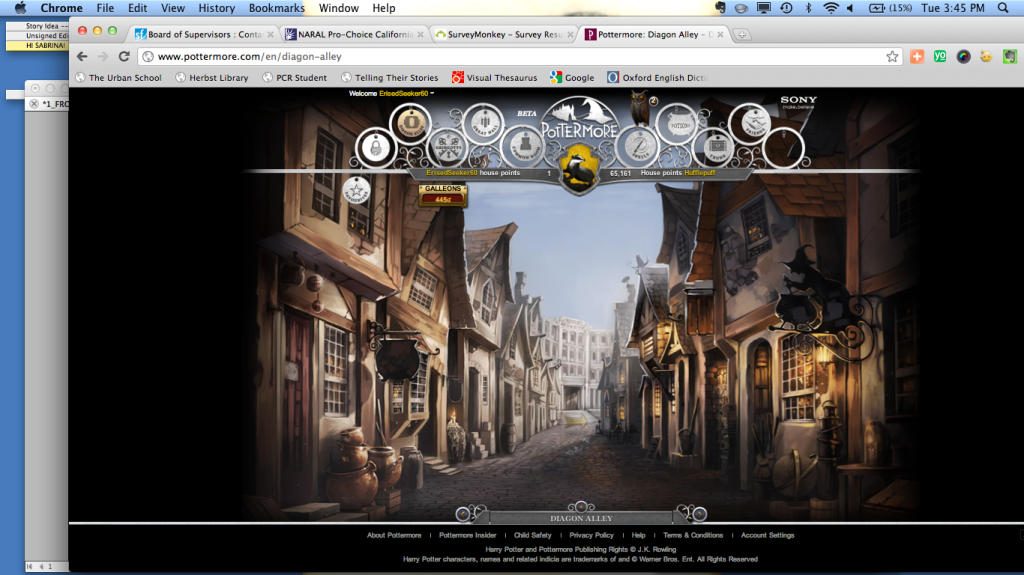Fourteen years. Seven books. Eight movies. Thousands of pages colored with brilliantly written characters, an imaginary world crafted with vivid detail, and a shocking amount of intricate planning.
There is no doubt that Harry Potter has changed both the publishing and film industries for good. In addition to selling millions of copies of books, Potter has spawned a new genre of literature for young readers: series like “Percy Jackson and the Olympians,” “Twilight,” “The Hunger Games,” and the “Inkworld Trilogy” all contain magic and mystique and are aimed towards the Harry Potter generation. After the final film was released on July 15, the question remains: can Potter do for the Internet what it did for publishing, and does it need to?
Pottermore, a website designed by J.K. Rowling, aims to provide an online outlet for Potter fans to read about new background details of the stories, purchase e-books that were previously unavailable, be “sorted” into their Hogwarts house, and interact with other fans in a safe environment.
On June 23, Rowling posted an announcement on her website stating, “The digital generation will be able to enjoy a safe, unique, online reading experience built around the Harry Potter books.” On July 31, the birthday of both Rowling and Harry Potter, clues began to appear on the website’s homepage. Only the first 1 million devoted fans who solved these clues within the allotted time were granted access to the beta version of the site before it went down for scheduled maintenance on Nov. 2. Though the website was supposed to open to all on Oct. 31, a statement from the website says “we have decided to further extend the Beta period…this means the site will not be opening to new users in the immediate future, but…we will open registration as soon as we can.”
Despite the hype, responses have been varied. Most fans say that Pottermore presents a unique new portal into the world of Harry Potter in a way that is simply not possible through the books or movies. Others, however, find the new site confusing and feel that Potter already has a strong web presence in the form of fan websites such as MuggleNet and the Leaky Cauldron.
Maya Herbsman (’13) says that although she would “maybe check MuggleNet before a movie or a book (release)… the Internet has never been my Harry Potter world.” Isabel Langen (’13) agrees, but says that Pottermore does not aim to supplement a new book or film: “The movies and books are very different, (and) the Internet is another very different medium. I don’t think it will replace my feelings when reading the books.”
Abigail Vass (’12), one of the two Urban students who has already joined Pottermore, says that “people can debate back and forth whether or not (Rowling) is a good writer, but she’s undeniably a good storyteller, and (Pottermore) really supports that.” She adds that there is not a huge incentive to return to the site after being sorted into one’s Hogwarts house, but “the Internet has been great for Potter” and there is an “undeniable need for more information” in the Potter community.
Other fans debate on message boards whether or not new information will degrade the crucial intricacies of the books. For instance, a pet rat’s missing finger — noticed in one of the first chapters of the series — becomes the key to a mystery in the third book, “Harry Potter and the Prisoner of Azkaban.”
Even though “It All Ends” was plastered all over the posters for the final film, “Harry Potter and the Deathly Hallows: Part 2,” it seems Pottermore is here to change that.

